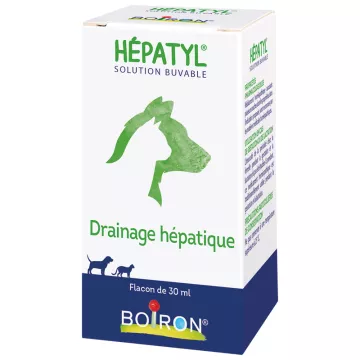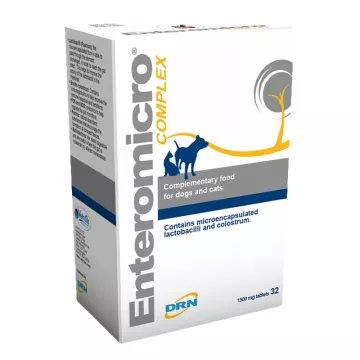

How do you feed your cat to keep it healthy?
Nutrition is an essential aspect of cat care. To guarantee your feline's good health, it's crucial to offer him a balanced diet adapted to his specific needs. Cat food should contain high-quality proteins, essential fatty acids, vitamins and minerals. Choose foods rich in animal proteins, such as chicken, fish and beef. Avoid foods containing cereals and meat by-products. We recommend consulting a veterinarian to determine the best diet for your cat.
Which vaccines are essential for cats?
Vaccines play a crucial role in preventing disease in cats. Basic vaccinations include feline panleukopenia, coryza (feline viral rhinotracheitis and calicivirus), and feline leukemia. The rabies vaccine is also important, especially if your cat goes out regularly. These vaccines protect your cat against potentially fatal diseases and contribute to its longevity.
How can I prevent parasitic infections in cats?
Internal and external parasites can seriously affect your cat's health. The main parasites to watch out for are fleas, ticks, intestinal worms and mites. To prevent these infestations, we recommend regular use of appropriate anti-parasite treatments. Consult your vet to select the most effective treatment, and follow a strict treatment schedule to ensure your cat's continued protection.
Why is neutering important?
Sterilizing cats is essential for controlling the cat population and preventing certain diseases. Sterilization reduces the risk of cancer of the reproductive organs, uterine infections and undesirable behaviors such as urine marking and running away. By sterilizing your cat, you're also helping to reduce the number of stray and abandoned cats.
How do I care for my cat's coat?
Coat maintenance is an important part of cat care. Regular brushing removes dead hairs, prevents tangles and prevents hairballs. Use a brush suited to your cat's coat type, whether short, medium-long or long. An occasional bath may be necessary, especially if your cat tends to get dirty often. Be sure to use products specially designed for cats.
What are the signs of stress in cats, and how can I reduce them?
Cats can show signs of stress through behavioral changes such as aggression, uncleanliness or isolation. To reduce stress, it's important to provide a safe, nurturing environment. Synthetic pheromones, scratching posts, interactive toys and a quiet personal space can help. If stress persists, consult a veterinary behaviorist.
How to care for your cat's teeth
Dental health is often overlooked, but it's essential to your cat's well-being. Dental disease can lead to pain, infection and even heart problems. Brush your cat's teeth regularly with a toothpaste specially designed for pets. Offer dry food or dental treats to help reduce plaque and tartar. Regular visits to the vet for professional cleanings are also recommended.
What to do if your cat has a food allergy?
Food allergies in cats can manifest as skin symptoms, digestive disorders or respiratory problems. If you suspect an allergy, consult your vet for a precise diagnosis. It may be necessary to follow an avoidance diet to identify the allergen. Once the allergy has been confirmed, switch to a hypoallergenic or specialized diet, avoiding trigger ingredients.
How to manage obesity in cats?
Obesity in cats is a growing health problem that can lead to serious complications such as diabetes, heart disease and joint disorders. To manage obesity, adopt a balanced, calorie-controlled diet. Encourage physical activity through interactive games and agility courses. Monitor your cat's weight regularly and consult a veterinarian for a personalized weight management program.
How important are regular visits to the vet?
Regular visits to the vet are essential to maintaining your cat's health. They enable early detection of signs of illness, follow up on vaccinations and parasite treatments, and monitor your feline's overall health. An annual check-up is recommended, but older cats or those with specific medical conditions may require more frequent visits.
How can I keep my cat well hydrated?
Hydration is vital to your cat's health. Cats are often reluctant to drink stagnant water, which can lead to dehydration. To encourage water consumption, use a water fountain that keeps the water moving, which cats find more appealing. Also offer wet food, such as pâté, to increase water intake. Place several bowls of clean, fresh water in strategic areas of your home for easy access.
What is first aid for cat injuries?
Cat injuries can range from minor scratches to more serious cuts. For minor wounds, clean the area with lukewarm water and a mild antiseptic. Apply antibiotic ointment and watch for signs of infection, such as redness or swelling. For more serious injuries, or if you have any doubts, consult a veterinarian immediately. Avoid giving your cat human medicines without medical advice, as some may be toxic to them.
How to manage urinary problems in cats?
Urinary problems are common in cats and can include urinary tract infections, crystals or stones in the bladder. Symptoms include difficulty urinating, blood in the urine, and frequent trips to the litter box. To prevent these problems, make sure your cat drinks enough water and eats a diet specially formulated to support urinary health. In the event of symptoms, consult a veterinarian promptly for proper diagnosis and treatment.
How do you introduce a new cat into a household with existing pets?
Introducing a new cat into a household with other animals should be done gradually to minimize stress and conflict. Start by isolating the new cat in a separate room with its own litter, food and water. Exchange scents by rubbing the animals with the same cloth to get them used to each other's odors. Then allow supervised encounters, gradually increasing the time spent together. Be patient and offer plenty of rewards and praise for calm behavior.
How to ensure your cat's safety outdoors?
The safety of cats outdoors is a major concern. To reduce the risks, have your cat spayed or neutered to reduce the urge to roam. Install a secure fence in your garden, or consider using a harness and leash for supervised outings. Avoid letting your cat out during high-traffic hours or at night. Make sure your cat is identifiable with a microchip and collar with an identification tag.